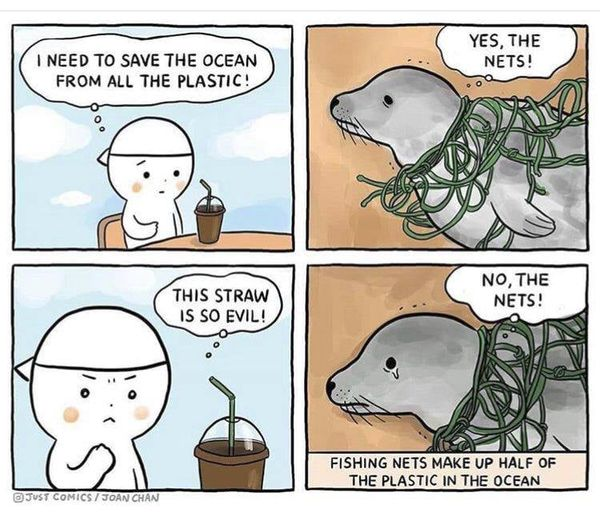Plastic Recycling is Largely A Myth.
The world produces an average of 430 million metric tons of plastic each year. The United States alone produces tens of millions of tons of plastic waste annually. Yet on average, only about 5 to 6 percent of plastic in the U.S. is recycled.
Basically, the vast majority of plastic either literally cannot be recycled, at all, or would be astoundingly expensive to properly seperate according to it's different types and run through the recycling process.
... So, in most cases, it isn't, and just ends up in a landfill or being directly dumped into nature.
Oil companies have known this for decades, and, as with other issues surrounding pollution ... they've promoted anything that makes an individual feel guilty when they know that even if all individuals followed the suggested course of action, it would have a negligible impact.


